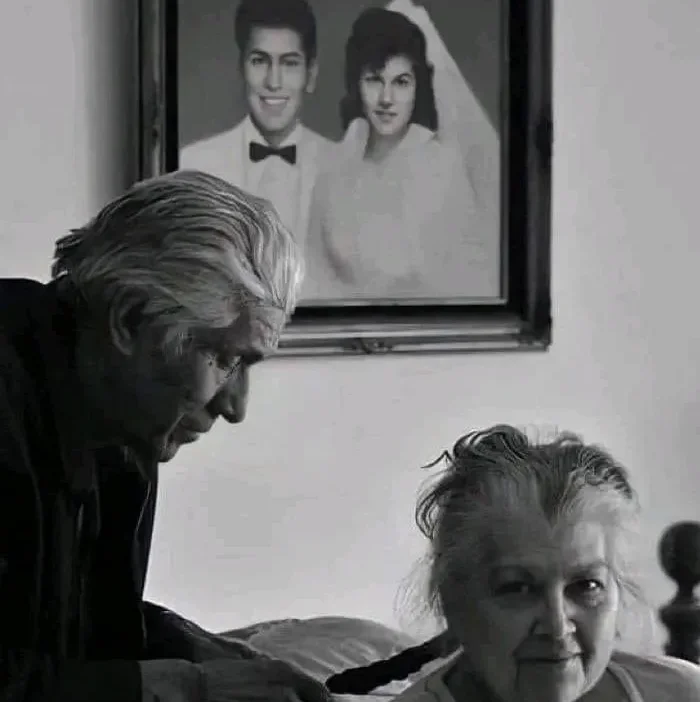
The subject of marriage and relationships is one that I prefer to talk less about. Of my many inclinations, marriage is not high on the list. I have personal beliefs that I’d rather put into practice than yarn or write about to people.
But for this one time, there is an observation that I’ve made over time which has got me a lot curious about marriage and relationships both in this generation and the ones that have gone before.
There appears to be a rise in the number of people with things to say concerning marriages and homes. People talk so much about how to find the right partner, how to get along and build a home and sort of things. Preachers have made it their most dominant sermon. Podcasts are set up to discuss relationships. Popular figures have been brought on seat to bat around the romantic relationship issue.
Everybody appears to have an idea on how to find the best partner. Seminars are set up, every time, everywhere to engage the topic of coupling. Content creators usually have a field day in terms of engagements when the bone of contention is on how to make relationships work.

Relationship experts believe they know what the roles of a woman are in the home and can tell precisely the responsibilities of a man.
People come out to give all sorts of divorce advice. They talk about how to raise kids and who should. They raise points on family planning, and even some go as far as discussing sex regularities and styles in the home.
Ideas are flying about online and offline on the matter of marriage between couples who have migrated. This is what the role of the man should be. This person should work while the other study, or stays back to take care of the children.
A big chunk of twitter debates and discussions are centered around relationships. Facebook and Instagram reels are largely relationships-themed. Don’t get me started on TikTok, that’s maybe the headquarter.
Questions are being asked of the female gender: what can they bring to the table?
What do you have to offer beyond your body and ability to procreate? As a lady, can you make a broke guy rich? Shouldn’t there be a measure to how much a woman submits to her man?
There is too much information to factor in before going ahead. Too many videos to watch. Too many people to listen to. Too many questions to answer. Too many seminars and services to attend before making a decision.
But this is what I believe: on the issue of marriage and relationships; less is more.
The less information we get from different minds about it, the clearer we can approach it.
People talk from varieties of biases. They only speak from the lens of their respective experiences.
I mean how many relationship podcasts did our parents have to listen to before they found themselves and have lasted this long? Some of our parents are casually doing 40 years in marriage without having to listen to a single relationship expert talk. Things have been working for them before the inventions we have in our days.

They found their till-death-do-us-part love in the days of letters and NIPOST. They didn’t have to be told how to find a correct partner by different people on social media in their days, and yet they found it in ways our current generation is struggling with.
Some of the mothers then settled for their husbands when the man could not even afford a shoe, made a decision to grow with him, labored together without the guidance of a Twitter marriage counselor, and now they have multiplied in every sense of the word.
What we have now are strong debates on the supposition of whether a woman should marry a man based on his potential or his pocket, based on his vision or his television.
It increasingly feels like the more is being said about it, the harder it becomes.
According to reports from ourworldindata.org, within the last decades, the institution of marriage has changed more than in thousands of years before.
Despite the volume of information on the machination of love and marriage in our world today, developments are on a downward slope. Marriages don’t last like they used to before (on average). Unmarried couples are increasingly choosing to live together. There is a rise in the decoupling of parents and marriages. Single mothers are in their large numbers.
Did you see how our parents raised us, sometimes raising four, or five children to maturity without a single phone in their world? Can you compare that to the struggle to raise just a single child in our world with the high chances that they turn out wayward?

But now we throw the principles that worked for them out the window, call them archaic and impossible to implement in today’s modern world, and we keep going in headless hunt for a renewed, refurbished pattern that can fit in. We are looking for an overhaul.
Africa in particular is known for upholding centuries-old customs, with an unbending value placed on family, community, and societal values. But these days, rapid processes of urbanization, modernization, and globalization have ushered in a wave of transformation that questions these deeply rooted traditions.
These processes have served as alterations to a relationship and marriage system that worked for centuries before now.
A couple, barely five years into marriage, are busy setting up a platform to start advising unmarried ones on how to make marriage work. It’s all been pretty much diluted these days.
For a people who talk about love all the time, we fail too much at it. We don’t know how to love anything conceptually. Our love understanding is too straight to function properly. At the slightest show of discomfort, we start to weigh up options. Once it is not right in our face, we forget how to be human, completely so.
We confuse ourselves with these plenty of talks. Less is always more. Imagine all the factors you have to put into consideration to have a working relationship, merging with the thoughts of survival on its own, it almost feels like a failure on arrival for most relationships.
The less you think and ponder about marriage and relationships, the more it tends to work out for you.
The principles are the same throughout time. Marriage is not even a modern concept. It wasn’t formulated in the 18th 19th or 20th century; it had been since time immemorial. There had always been a structure for it. It didn’t come without a manual.
The problem we have these days is that we try too hard to revise the manual and modify it to our self-centered edition.
Why do marriages between uneducated couples tend to last longer than those of educated couples?
While I can not factually ascertain the reason for it, the idea that this condition is connected to limitations in knowledge and measured exposure makes sense.
These days, money has become a big tension in a lot of households, this is unlikely in the homes of the uneducated compared to that of the schooled. Feminism theories are usually not something for them to worry about and that’s because they are not even aware that they exist.
They run their marriages and homes in the purest form. They play by the book and it works for them.
I’m talking of love that is not conditioned by money and possession. Love that does not care who does what in the house. Love that is not demanded but naturally earned. Love that stands unwavering through thick and thin. Love that is never for selfish gains.
Loyalty. Patience. Kindness. Commitment. Endurance. Submission. Forgiveness. Sincerity. Transparency. Honor. Trust. Perseverance.
These are the hallmarks of true love, and if you check, you are likely to find almost all of these attributes in relationships that last.
Marriages that have stood the test of time, and that have lasted north of 20 years are not without commitment, submission, perseverance, and trust amongst other requisites.
Too much knowledge kills love. It brings love to an abrupt end. It gets you questioning your choices and decisions. It brings about arguments. It leaves two people on different pages. It blurs your foresight and vision ultimately.
The less you look, the more you see.
Marriage long in the tooth — a marriage system that’s perceived rather old. Maybe it’s the answer we’re looking for after all.


No responses yet